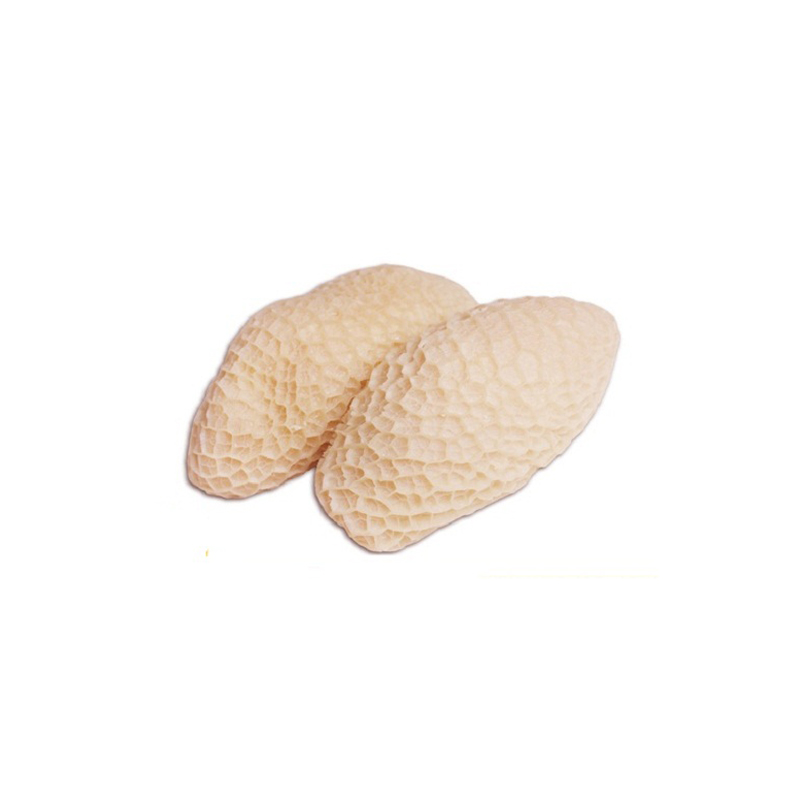
100 gr |
-- |
|
|---|---|---|
| Carbohydrate (gr) | 15.04 |
4928.47 |
| Protein (gr) | 3.59 |
1176.23 |
| Fat (gr) | 12.46 |
4083.43 |
| Fiber (gr) | 1.36 |
445.97 |
| Cholesterol (mg) | 14.64 |
4795.8 |
| Sodium (mg) | 325.27 |
106557.75 |
| Potassium (mg) | 392.16 |
128471.4 |
| Calcium (mg) | 78.15 |
25603.27 |
| Vitamin A (mg) | 46.04 |
15084.01 |
| Vitamin C (mg) | 6.16 |
2019.31 |
| Iron | 0.62 |
203.1 |
Calf rumen, often referred to as “tripe” or “paunch,” is a traditional organ meat valued for its distinct texture and rich nutritional profile. Known for its culinary significance in many cultures, calf rumen is packed with essential nutrients but requires mindful consumption due to its high cholesterol content. Below, we explore its nutritional benefits and considerations.
Caloric content of calf rumen is 98 calories per 100 grams.
1. Rich in Folic Acid and B Vitamins:
Calf rumen is a great source of folic acid and B vitamins, which are crucial for energy production, DNA synthesis, and maintaining healthy nerve function. Folic acid is particularly beneficial for expectant mothers, as it supports fetal development and reduces the risk of neural tube defects.
2. High Levels of Iron and Zinc:
Iron in calf rumen helps combat anemia by promoting the production of red blood cells, while zinc supports the immune system, aids in wound healing, and enhances enzymatic functions. These nutrients make calf rumen a valuable food for individuals seeking to boost their overall health.
3. Potassium for Electrolyte Balance:
Potassium is essential for maintaining fluid balance, muscle function, and heart health. The presence of potassium in calf rumen can contribute to reducing blood pressure and supporting cardiovascular well-being.
1. Elevated Cholesterol Levels:
Despite its many benefits, calf rumen is high in cholesterol. Regular consumption in large amounts may lead to increased blood cholesterol levels, potentially heightening the risk of cardiovascular diseases. It is advisable to enjoy it in moderation.
2. Unsuitable for Heart Patients:
Individuals with heart disease or those managing high cholesterol levels are recommended to avoid consuming calf rumen. Organ meats, including rumen, may worsen their condition and should be replaced with lean protein alternatives like chicken breast or fish.
Calf rumen is a staple in many traditional cuisines, valued for its chewy texture and ability to absorb flavors. It is often prepared as part of hearty dishes such as soups, stews, and curries. Popular examples include Mexican menudo, Turkish işkembe çorbası, and African tripe stew.
In addition to its nutritional qualities, calf rumen represents a sustainable approach to meat consumption, as it utilizes parts of the animal that might otherwise go to waste. This practice reflects a commitment to minimizing food waste and promoting nose-to-tail eating.
Calf rumen is a nutrient-rich and versatile food that offers numerous health benefits when consumed responsibly. However, its high cholesterol content necessitates caution, especially for individuals with heart-related health concerns. For those without such restrictions, it remains a flavorful and nutritious addition to a balanced diet, deeply rooted in cultural culinary traditions.